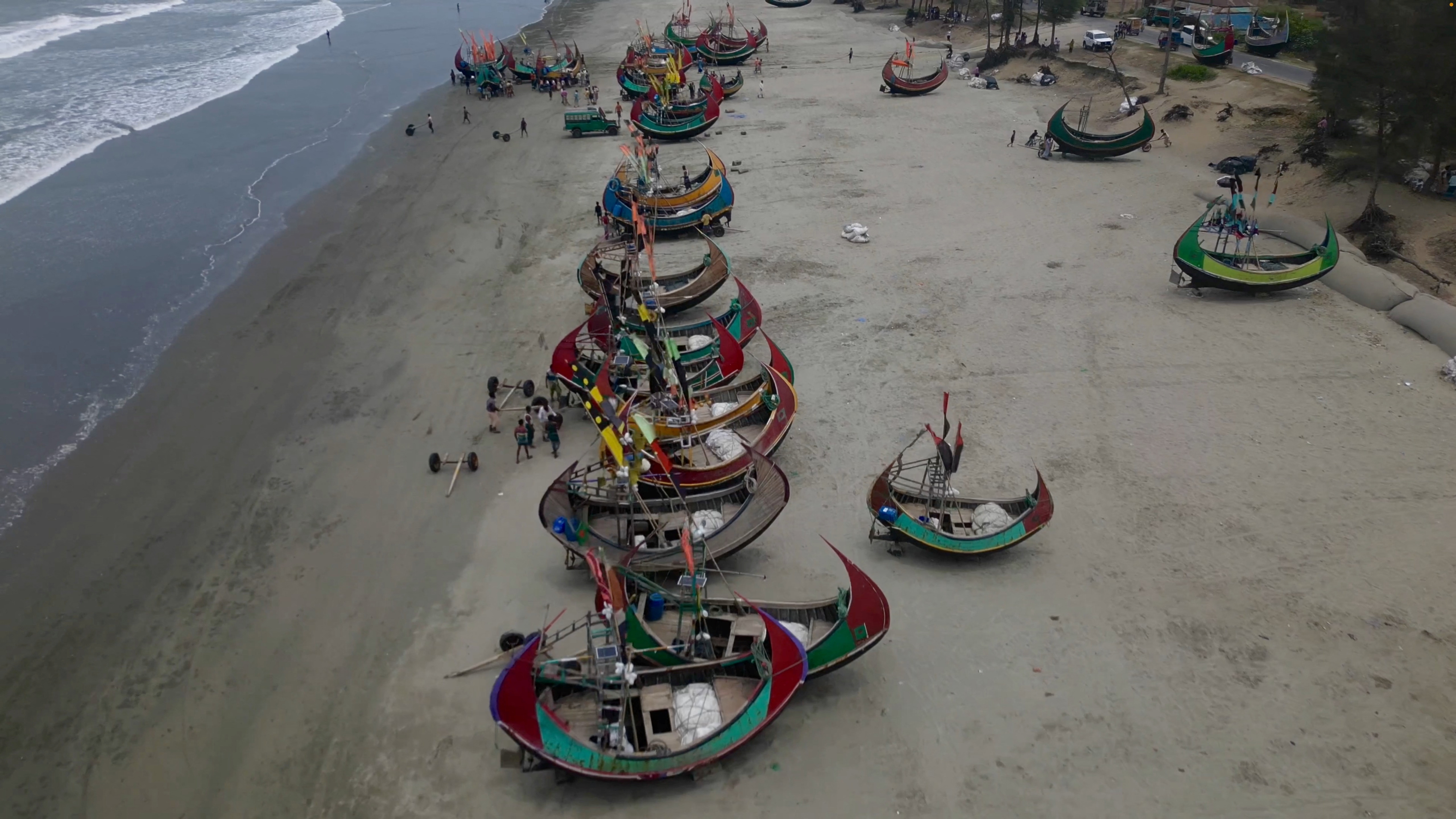DHAKA (Reuters) – Storms from a powerful cyclone that moved inland from the Bay of Bengal battered the Myanmar port city of Sittwe on Saturday, but largely spared a densely populated cluster of refugee camps in neighboring, low-lying Bangladesh. .
About 400,000 people were evacuated in Myanmar and Bangladesh before Cyclone Mocha made landfall, as authorities and aid agencies scrambled to avert huge losses from one of the most powerful storms to hit the region in recent years.
The fragile camps in Cox’s Bazar in Bangladesh, where more than a million Rohingya refugees live, have been relatively unaffected by the now gradually weakening storm.
“Fortunately, we can escape the worst of the cyclone,” said Mohammad Shamsud Doza, a Bangladesh government official in charge of refugee affairs. We have received some reports of huts being damaged, but there were no casualties.”
Myanmar appears to have taken the immediate impact of Cyclone Mocha, with winds of up to 210 kilometers per hour (130 mph) ripping tin roofs and bringing down a communications tower.
A video posted by a witness on the city’s social media showed parts of Sittwe, the capital of Rakhine State, flooded and the ground floors of several buildings.
An ethnic militia that controls large swathes of Rakhine said many buildings in Sittwe and Kyauktaw had been damaged, and that schools and monasteries where people had sought shelter remained roofless.
“The entire northern Rakhine region has been severely damaged,” said Arakan Army spokesman Khin Thu Kha. “People are in trouble.”
The United Nations and local media said communications networks in Rakhine were disrupted after the cyclone made landfall.
Across Rakhine State and the northwest of the country, some 6 million people were already in need of humanitarian aid, while 1.2 million people were displaced, according to the UN Office for the Coordination of Humanitarian Affairs (OCHA).

[1/2] A drone view shows fishermen moving their boats to safer ground due to Cyclone Mocha, at Teknaf Marine Drive, Cox’s Bazar, Bangladesh on May 12, 2023, in this screenshot obtained from a video flyer. Arjun Jain/Rohingya refugee response/Handout via Reuters
“Having a cyclone hit an area that already has such deep humanitarian needs is a nightmarish scenario affecting hundreds of thousands of vulnerable people whose coping capacity has been severely eroded by successive crises,” said UN Resident Coordinator Ramanathan Balakrishnan.
Myanmar has been plunged into chaos since the military junta seized power two years ago. After the protests were suppressed, the army’s resistance movement is fighting on various fronts.
A spokesman for the military council did not immediately return a phone call from Reuters seeking comment.
Food and supplies
In Bangladesh, where authorities moved some 300,000 people to safer areas before the storm hit, Rohingya refugees huddled inside densely populated camps in Cox’s Bazar in the country’s southeast inside their crumbling homes.
“Our shelter made of bamboo and tarpaulin offers little protection. We pray to God to save us,” said refugee Mohamed Aziz, 21.
Many Rohingya refugees, including half a million children, live in sprawling camps prone to floods and landslides after fleeing Myanmar’s military-led crackdown in 2017.
Hundreds of thousands of Rohingya Muslims remain in Myanmar’s Rakhine State, with many still confined to camps separated from the rest of the population.
“The state government has moved many Rohingya from the Sittwe camps to higher areas,” said Zaw Min Tun, a Rohingya resident in Sittwe, adding that the evacuation took place without any warning.
They also didn’t give them any food, so people are starving.”
Ahead of the storm, the World Food Program said it was preparing food and relief supplies that could help more than 400,000 people in Rakhine and surrounding areas for a month.
Reporting by Roma Paul in Dhaka and Reuters staff. Written by Devgyot Ghoshal. Editing by Clarence Fernandez
Our standards: Thomson Reuters Trust Principles.

“Lifelong food lover. Avid beeraholic. Zombie fanatic. Passionate travel practitioner.”
